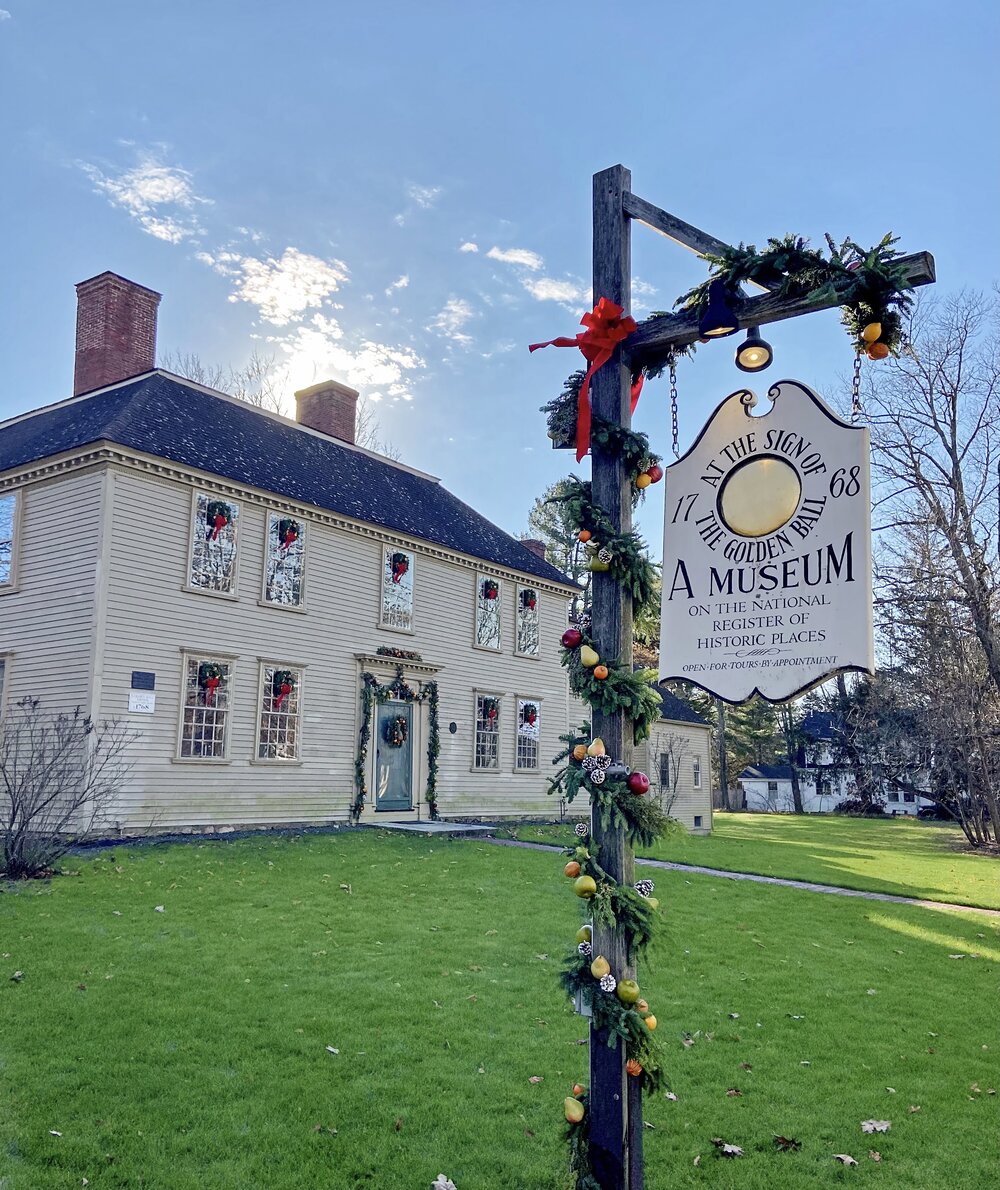“General Gage’s Spies” via the Golden Ball Tavern, 15 Sept.
On Thursday, 15 September, I’ll deliver an online lecture for the Golden Ball Tavern Museum in Weston.
The talk will be titled “General Gage’s Spies,” and here’s our event description:
Yet another new wrinkle is that even as those spies were staying at the Golden Ball on their way to Worcester, people elsewhere in Weston were preparing two cannon for battle. Braddyll Smith, recently chosen to be both Weston’s representative to the Massachusetts Provincial Congress and colonel of the local militia regiment, knew about that effort and was probably in charge.
Smith’s predecessor in those posts was Elisha Jones, a Loyalist who had left for Boston around the turn of the year. Presumably Smith and his Patriot neighbors made sure that Elisha’s cousin Isaac, proprietor at the Golden Ball, never heard about their two cannon. After all, you didn’t know who might come through town.
My talk is scheduled to start at 6:00 P.M. Here’s the link to register. This event is free, thanks to support from the Weston Cultural Council, and folks can also join or donate to the Golden Ball Tavern Museum to support and learn about more such events.
The talk will be titled “General Gage’s Spies,” and here’s our event description:
On February 23, 1775, three men arrived at Isaac Jones’s tavern in Weston, saying they were surveyors from Boston. They were actually two officers and a private from the king’s army. The royal governor, General Thomas Gage, had assigned them to find cannons and other military supplies that the rebel Massachusetts government was collecting outside of Boston. Drawn from new research, this talk discusses who those men were, the crucial role they played in the Battle of Lexington and Concord, and what happened to them after the Revolutionary War.The spies’ visit to Jones’s Golden Ball Tavern is fairly well known. In The Road to Concord I showed how their mission fit into Gen. Gage’s larger strategy to locate and neutralize the artillery that rural Patriots were hiding. Since then I’ve gathered some more information about the two army officers, which will be part of this talk.
Yet another new wrinkle is that even as those spies were staying at the Golden Ball on their way to Worcester, people elsewhere in Weston were preparing two cannon for battle. Braddyll Smith, recently chosen to be both Weston’s representative to the Massachusetts Provincial Congress and colonel of the local militia regiment, knew about that effort and was probably in charge.
Smith’s predecessor in those posts was Elisha Jones, a Loyalist who had left for Boston around the turn of the year. Presumably Smith and his Patriot neighbors made sure that Elisha’s cousin Isaac, proprietor at the Golden Ball, never heard about their two cannon. After all, you didn’t know who might come through town.
My talk is scheduled to start at 6:00 P.M. Here’s the link to register. This event is free, thanks to support from the Weston Cultural Council, and folks can also join or donate to the Golden Ball Tavern Museum to support and learn about more such events.


